Memnon
Overall, in Greek mythology, Memnon (Ancient Greek: Μέμνων) was an Ethiopian king and son of Tithonus and Eos. As a warrior he was considered to be almost Achilles' equal in skill. During the Trojan War, he brought an army to Troy's defense and killed Antilochus during a fierce battle.
The death of Memnon echoes that of Hector, another defender of Troy whom Achilles also killed out of revenge for a fallen comrade, Patroclus.
After Memnon's death, Zeus was moved by Eos' tears and granted him immortality. Memnon's death is related at length in the lost epic Aethiopis, composed after The Iliad circa the 7th century BC. Quintus of Smyrna records Memnon's death in Posthomerica. His death is also described in Philostratus' Imagines.
Dictys Cretensis, author of a pseudo-chronicle of the Trojan War, writes that "Memnon, the son of Tithonus and Aurora, arrived with a large army of Indians and Ethiopians, a truly remarkable army which consisted of thousands and thousands of men with various kinds of arms, and surpassed the hopes and prayers even of Priam."
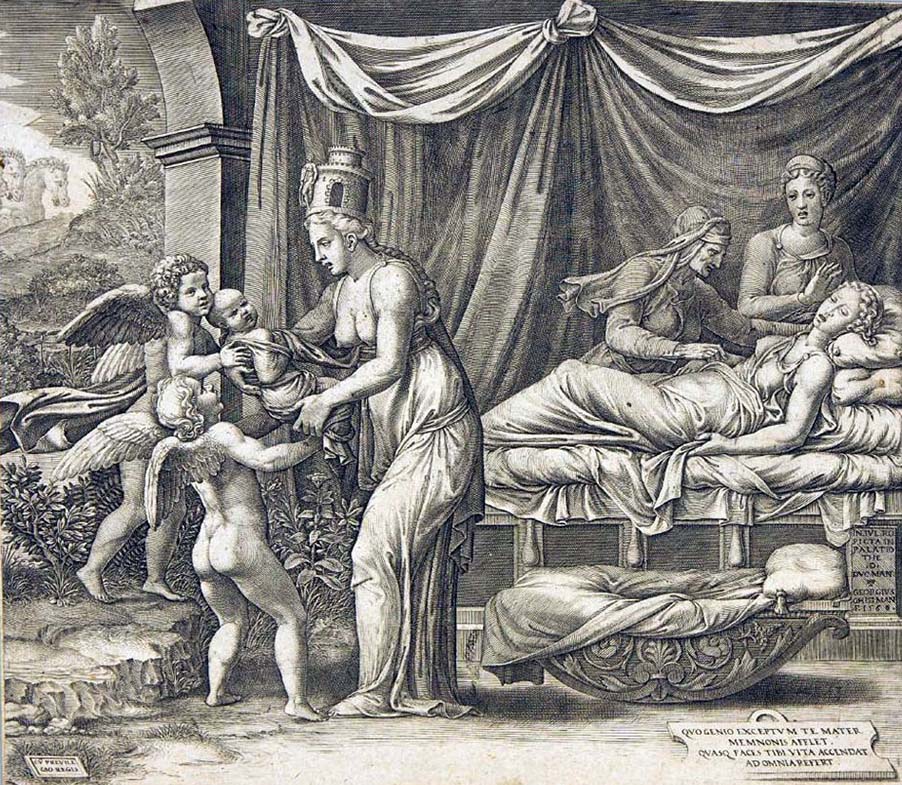
Son of the immortal old man
Tithonus, they say, was snatched away by Eos (Dawn) for love, brought by the goddess to that Ethiopia which is not in Africa but in the east, and there he founded the city of Susa. Tithonus was made immortal when Eos asked Zeus that Tithonus should be deathless and live eternally.
However, she forgot to ask youth for him, and for that reason he suffers the full weight of Old Age, babbling endlessly and having no strength in his limbs. But before that, Tithonus and Eos lived rapturously as lovers do, and they had children: Emathion and Memnon.
His brother killed by Heracles
Emathion became king of the Ethiopians, and is remembered for having attacked Heracles when the latter, having slain Busiris (the Egyptian king who used to sacrifice strangers), sailed up the river Nile.
Memnon in the East
But Memnon himself was, as Tithonus, related to the East, and he is said to have built a palace of many colored and shining white stones bound with gold in the city of Ecbatana. For Memnon, starting from Ethiopia, overrun Egypt and conquered the East as far as the city of Susa, which he surrounded by walls.
So Memnon, although being king of the Ethiopians, came to Troy, not from what today is called Africa, but from Susa, not far away from the river Tigris, in the land that later became Persia. And when he made his march to the west, he subdued all the peoples that lived between Susa and Troy.
Memnon's arrival
When Hector, the pillar of Troy, was killed by Achilles, there was not much hope left for the Trojans, except that provided by Memnon, who wearing an armour made by Hephaestus, arrived from the east with a huge host to help the city.
Memnon is said to have killed the Pylians Ereuthus and Pheron, who followed Nestor to the Trojan War, and also Nestor's son Antilochus, who died for his father's sake. For the horse kept Nestor's chariot from moving, since it had been wounded by Paris, when Memnon approached.
Then Nestor shouted to his son Antilochus, who came to his rescue, and saved his father's life at the price of his own. For, as some say, Memnon slew him, although there are those who say that Antilochus was killed by Hector.
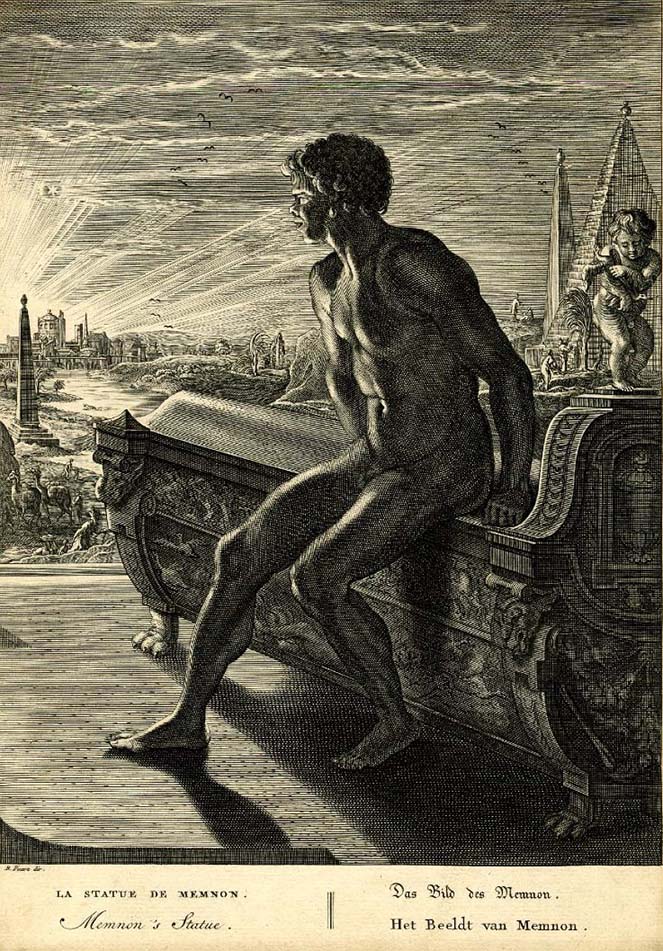
Achilles kills Memnon
After the death of Patroclus, Antilochus was considered to be the greatest friend of Achilles, and Nestor calls upon Achilles to gain vengeance for Antilochus, or at the very least retrieve the body and armour of his son.
Achilles had been warned, by his mother Thetis, that his death would follow shortly after that of Memnon, but unperturbed Achilles heads towards the Aethiopian force.
It would thus come about that two opposing heroes, in the form of Memnon and Achilles would face each other, both adorned in armour crafted by Hephaestus.
Memnon and Achilles were both held in high esteem by Zeus, and he favoured neither of them in the fight, although it was said that he ensured neither tired during the fight. Fanciful versions of the battle between Memnon and Achilles tell of Zeus making both gigantic in stature, so that all on the battlefield could witness the fight.
Details of the actual fight between Memnon and Achilles are scarce, although it is said that the pair approached each other on foot.
A long drawn out fight then commenced and although Memnon managed to inflict a wound upon the arm of Achilles, it did gain Memnon any great advantage.
Eventually, Zeus would weigh up the fate of Memnon and Achilles, and when the scales decided in favour of Achilles, the Achaean hero plunged his sword, of spear, into the heart of Memnon, killing him.
As for the prophecy of Thetis, this would come true, for after the death of Memnon, Achilles pushed on into the heart of the Trojan defences, but within touching distance of the Scaean Gate, he would be struck down by an arrow unleashed by Paris.
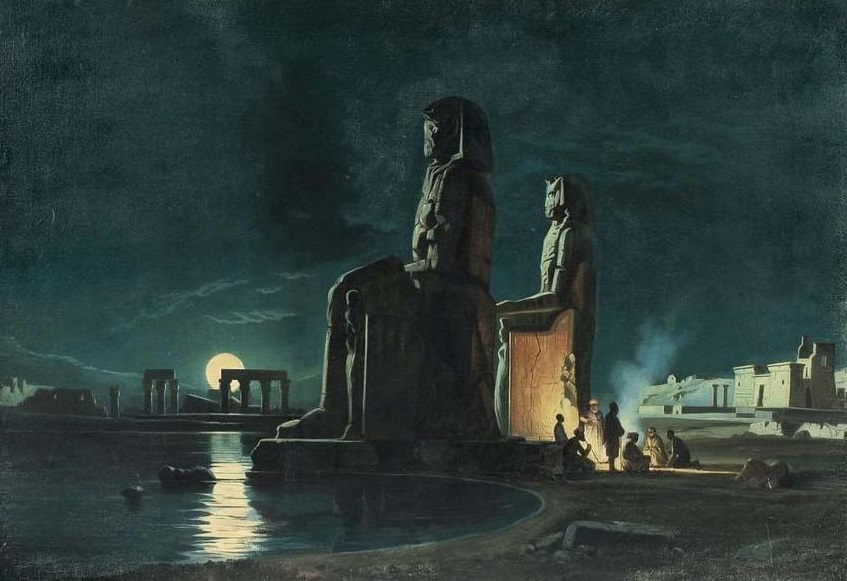
Soldiers turn into birds
In any case, some have told that when Memnon died, the whole Ethiopian army vanished with his king, the soldiers turning into birds. Now, some may feel tempted to reason that this is just a way of expressing the idea of the Ethiopian army escaping or being disbanded.
And they may also feel that if the army was dispersed it would be better just to say so instead of making up capricious tales, which are most implausible. But, whatever they may feel, the Achaeans and Trojans were most amazed when they watched the Ethiopian army fly away.
For current things amaze nobody, but extraordinary and impossible things do. And that was a great marvel, unlikely to happen in our time, as no one has ever since claimed to have witnessed anything of the sort.
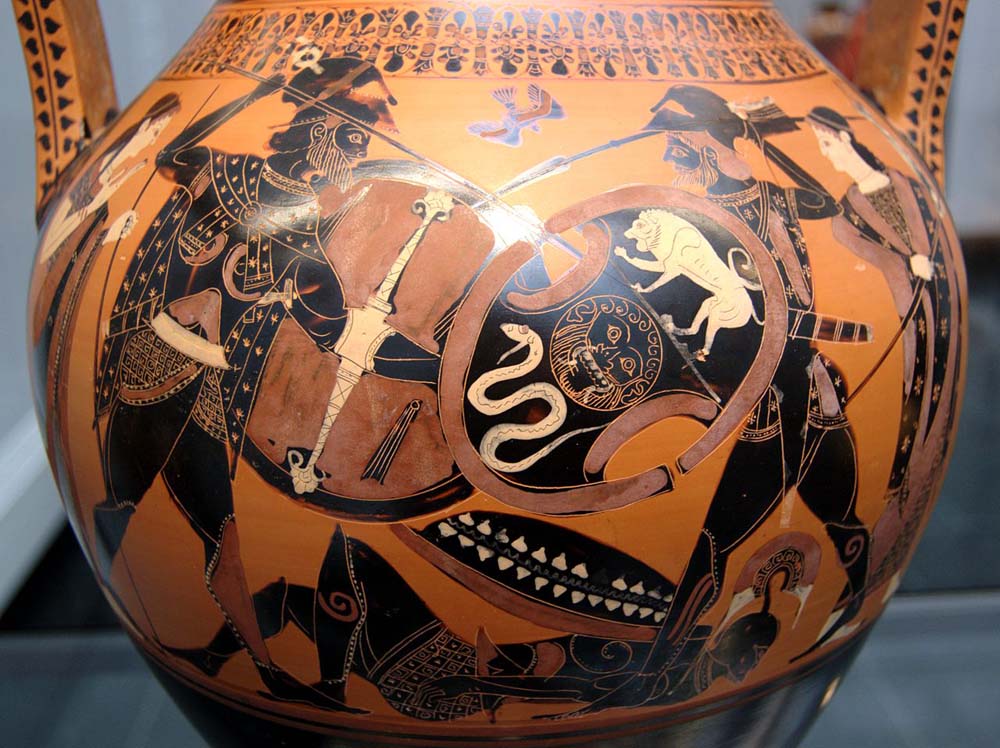
Eos begs Zeus for her son
Anyway, the death of this magnificent king caused great grief to his mother, and because of her pain the colours of the morning skies grew dull, and the heavens were overcast with clouds. And Eos came to Zeus and asked him to grant Memnon special honours as consolation for his death.
Accordingly, the smoke of Memnon's funeral pyre turn into birds, some of which killed each other over the flames. These birds, which are called Memnonides, used to return on stated days every year to Memnon's grave, in a hill above the outlet of the Aesepus River, which flows from the mountains of Ida in the Troad, and sprinkle it with the water of the river from their wet wings.
But others say that Memnon was buried in Paltus, which is on the coast of Syria in front of the island of Cyprus. Eos herself never ceased to lament the death of her handsome son, who was also a magnificent king. For the dew, they say, is the tears shed by the goddess for the death of Memnon. And yet it has also been told that Zeus bestowed immortality upon Memnon at Eos' request.
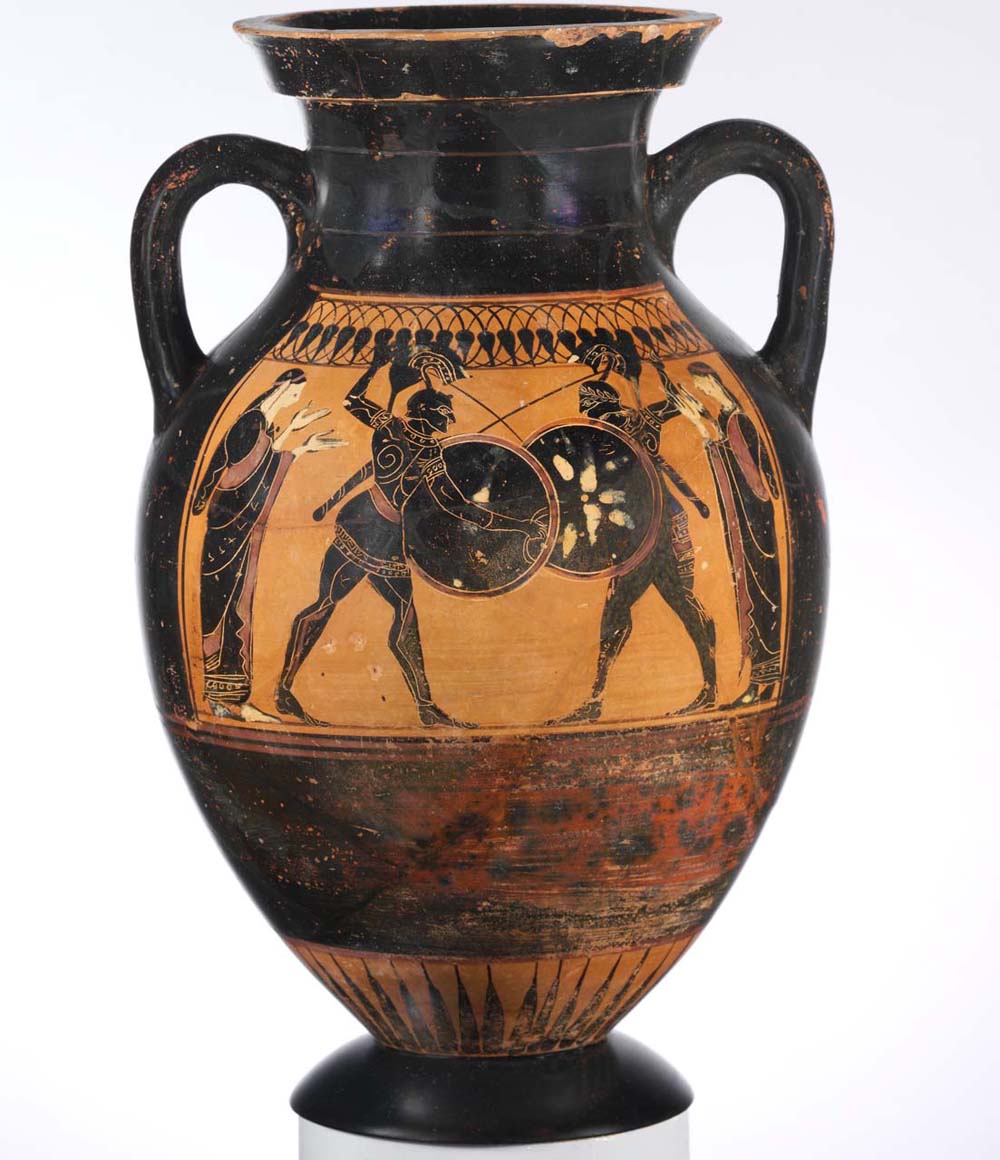
Statue
Such is the story of Memnon. But others have said that this son of Eos neither went to Troy nor died there, but that he died in Ethiopia after ruling the country for five generations. That may seem a long time. However, the Ethiopians, being the longest lived men on earth, deplored his death as premature, mourning him as a youth.
They also tell that a wonderful statue of a young and still unbearded Memnon had been made out of black stone, and turned towards the sunrise. The sitting figure was represented in the very act of rising up, with the lips as about to speak. They affirm that the lips spoke when the sun's rays fell upon them at dawn, and that the eyes of the statue seemed to stand out and gleam against the light.
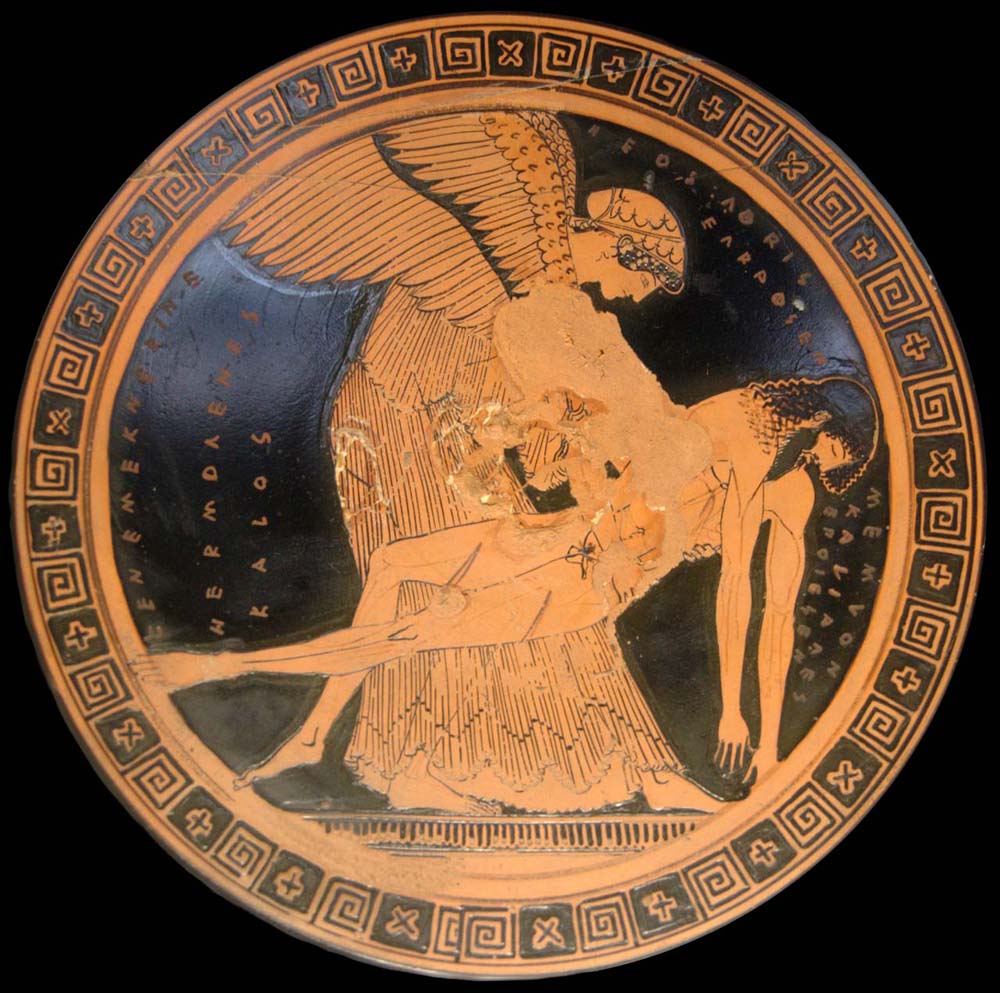
Memnon in Mythology and History
The name Memnon may refer to the following individuals:
Memnon (mythology), a king who led an army that fought on the side of the Trojans in the Trojan War
Memnon of Rhodes (380–333 BC), commander of the Greek mercenaries working for the Persian King Darius III
Memnon of Thrace, Macedonian governor of Thrace who led a rebellion in 332 BC - see Antipater
Memnon of Heraclea, 1st or 2nd century Greek historian
Saint Memnon the Wonderworker, 2nd century Christian saint from Egypt, hermit and hegumen of one of Egyptian monasteries
Memnon, ward of Herodes Atticus in Athens in the 2nd century AD
Saint Memnon the Centurion, martyred c. 305 - see August 23 (Eastern Orthodox liturgics)
Memnon of Ephesus, a fifth century bishop of Ephesus who took part in the Nestorian controversy
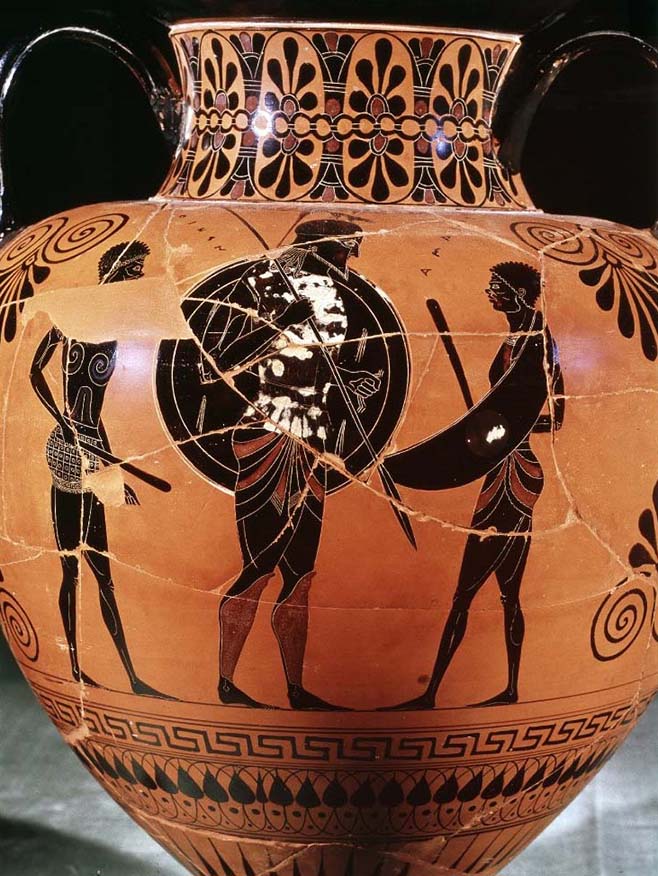
Sources
Dictys Cretensis, Trojan War Chronicle, 4.4
Quintus & James 2004, pp. 39, 556–60
The Editors of Encyclopaedia Britannica. "Memnon". Encyclopaedia Britannica.
Homer, The Odyssey 11.522
Homer, Iliad
Herodotus, Histories 5.54, 7.151.
Pausanias (1918). Description of Greece. Translated by W. H. S. Jones. Harvard University Press; William Heinmann Ltd.
Manetho, Aegyptica, book 2
Homeric Hym to Aphrodite 215
Hesiod, Theogony 984
Quintus Smyrnaeus, The Fall of Troy book 2
Pliny, Natural History, book 36.11
DICTYS CRETENSIS BOOK 4, TRANSLATED BY R. M. FRAZER
"Greek Mythology Link"













